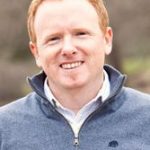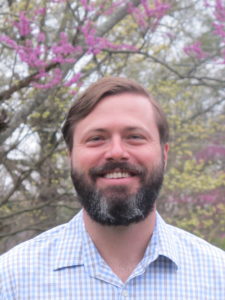Residency Experience
For the months of February through April we’ve invited several people to give you a peek into
the new directions God has called The Barnabas Center. We hope these directions will be
encouraging and that you’ll resonate with the needs and hopes that are being shared. In May
we’ll be back online with our usual thematic blog posts.
_____________________________________________________________________________________
“Are you a counselor?”
“No.”
“So, you’re a pastor?”
“Well, not exactly. I’m not ordained or anything like that. I mean, I’ve been to seminary and even graduated, but…[voice trailing off]. I am on staff at a church though.”
And with these words my Barnabas Center Residency experience began. The questions may seem innocent enough but they struck my soul as anything but. How does one respond to such a complicated line of questioning when we’re just in the introductory portion of the hour? I mumbled through a few more incoherent sentences until the conversation mercifully moved on, thanks to an intervention from the one professional counselor in the room.

As a new Pastoral Resident Counselor at The Barnabas Center, I found myself in this strange in-between state of being neither a pastor nor a counselor. Yet here I was sitting in a counseling session attempting to be empathetic and say something insightful. I honestly don’t remember how the remainder of the session went or much of what was said, but I knew immediately that this residency experience was about much more than I had imagined.
The Residency Program expands the influence of The Barnabas Center by training new counselors in the Barnabas model of change and growth. It includes supervision, model training, and partnership with a local church, designed to help participants grow in three ways – personally, professionally, and in perspective. Each week I am able to apply the Barnabas model to myself in the context of a caring staff community. The Residency Program encourages professional growth through co-counseling with licensed counselors and allows candidates to pursue licensure in order to work toward their needed hours. Finally, the residency affords participants the much needed experience of working closely with a local church so that counseling can be put in its proper perspective in a client’s overall health and growth in grace.
I have found that the Residency Program does foster growth in these three areas. Most surprising has been the personal transformation I have experienced. I came into the residency year expecting to learn some new information and gain tools to aid me in being a better counselor. To be sure, I am receiving excellent training and information. Yet the greater impact has been in seeing and understanding more of myself – my sin, my fears, my hopes, and my dreams. Through the Residency Program, God has awakened a sense of calling and purpose in me that in some ways I am surprised to find, but in other ways feels completely natural. Perhaps the best thing to say about the Residency Program is that, like all of my experiences with The Barnabas Center, it is helping me become more of who I want to be – more of myself in Christ.
“So…are you a counselor?”
“Yes.”
“And…you’re a pastor?”
“Yes.”
.
To learn more about the Vision 2020 campaign please watch this brief video:
.
 Nick joined Barnabas in 2013 as part of the Pastoral Residency Program in which he receives weekly training and practical experience in the Barnabas counseling model, along with the opportunity for practical application in his role as Worship Director at Hope Community Church. Nick and his wife Juliana have been married for 13 years and have two children, Caroline and Geoffrey. He enjoys making and eating good food, creating good music and the company of good friends.
Nick joined Barnabas in 2013 as part of the Pastoral Residency Program in which he receives weekly training and practical experience in the Barnabas counseling model, along with the opportunity for practical application in his role as Worship Director at Hope Community Church. Nick and his wife Juliana have been married for 13 years and have two children, Caroline and Geoffrey. He enjoys making and eating good food, creating good music and the company of good friends.







